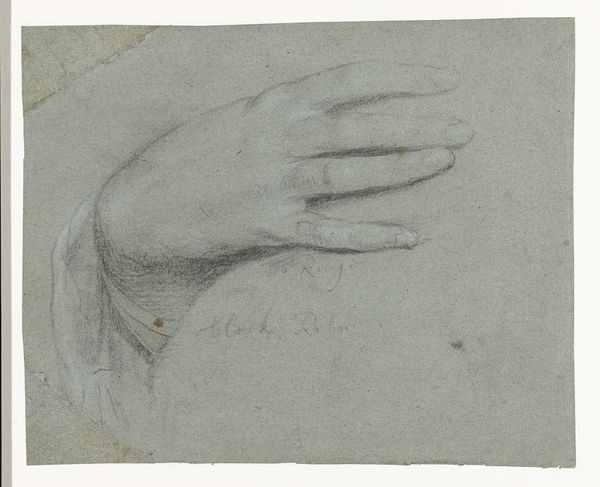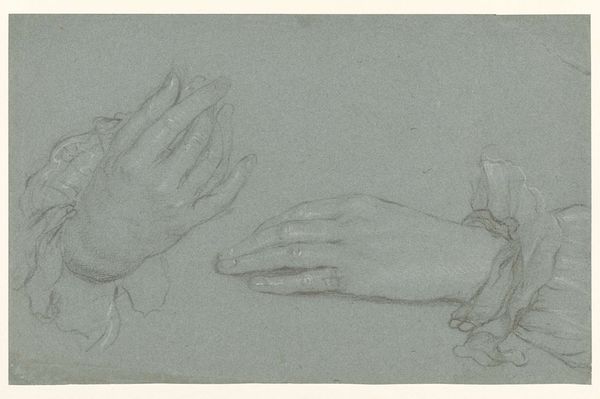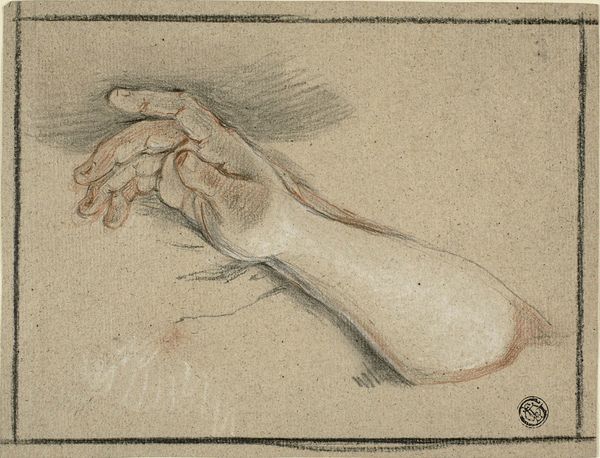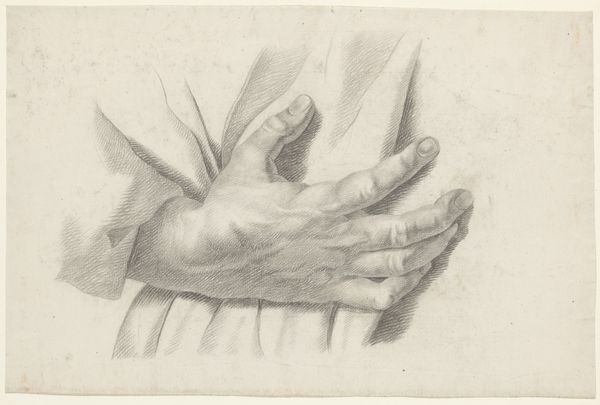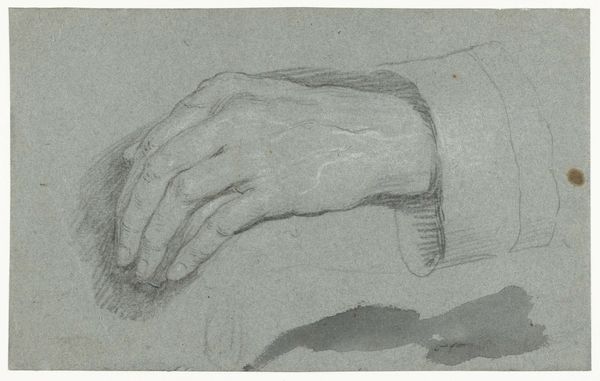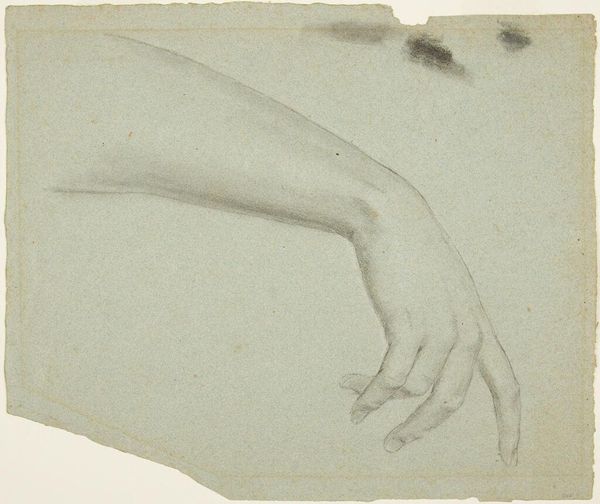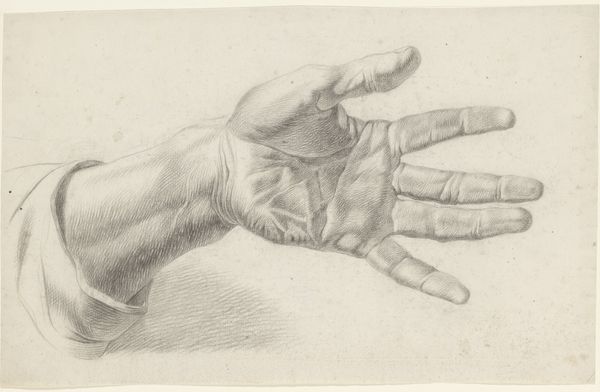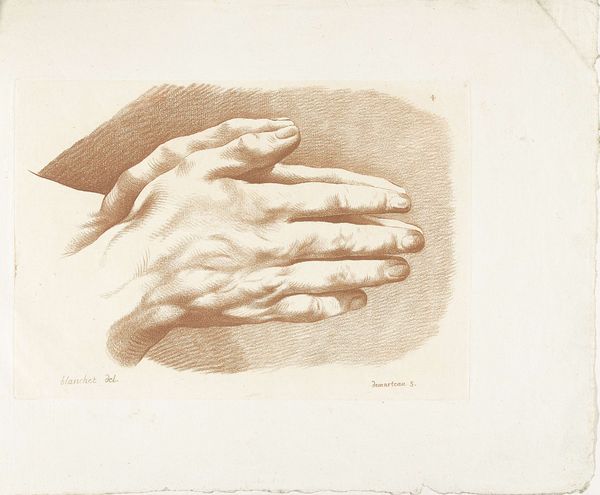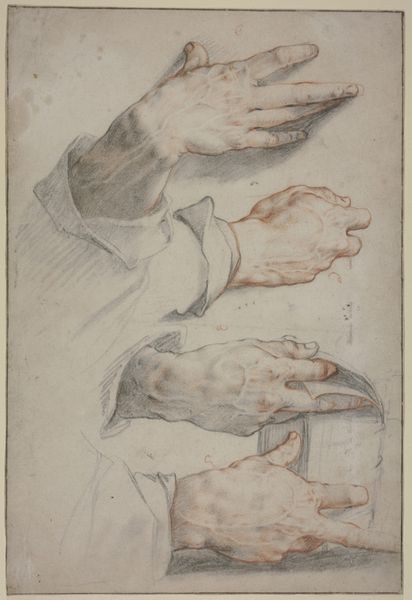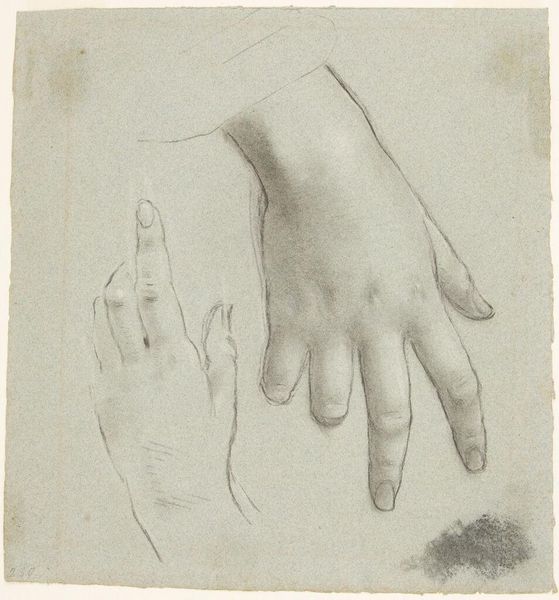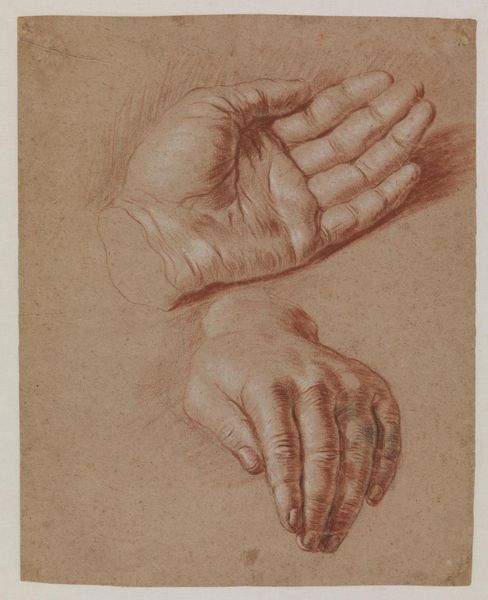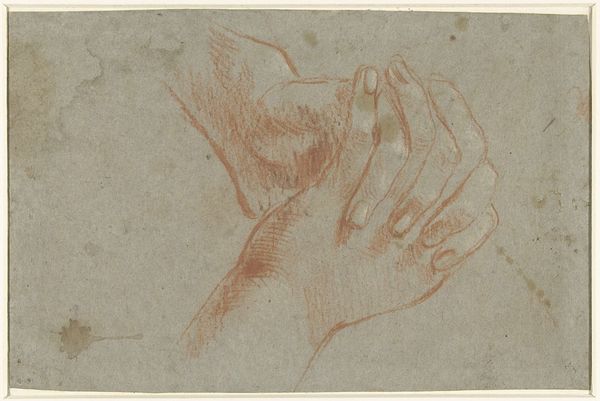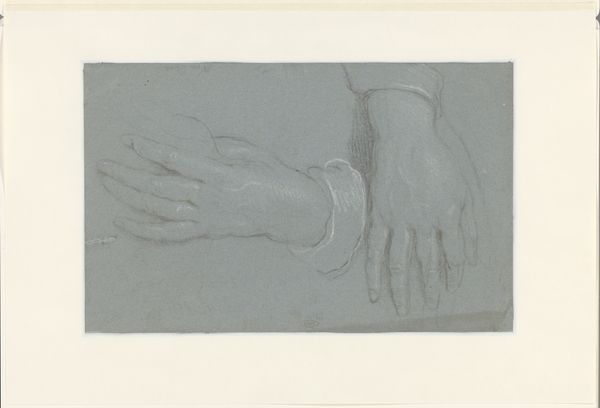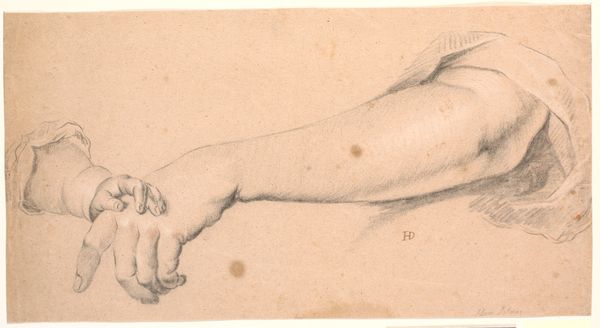
drawing, print, paper, pencil, chalk, charcoal
#
portrait
#
drawing
#
neoclassicism
# print
#
charcoal drawing
#
paper
#
portrait reference
#
pencil drawing
#
pencil
#
chalk
#
portrait drawing
#
charcoal
#
academic-art
Dimensions: 350 × 240 mm
Copyright: Public Domain
Curator: This drawing by Thomas Lawrence, made circa 1796-1800, is called "Two Studies of a Right Hand". It's currently housed here at the Art Institute of Chicago. Editor: They look like working hands, well-used. Notice the tonal variety he gets with what appears to be chalk and graphite? It's quite skillful, revealing musculature and suggesting form through a delicate application of materials. Curator: Absolutely. It's a fascinating piece because, although Lawrence is renowned for his portraits of the British elite, this feels more like a preparatory sketch. Examining the materiality reveals the emphasis Lawrence places on his initial studies and processes. We're looking at his means, how he arrived at a polished portrait for public view. Editor: It makes you wonder who these hands belonged to. Perhaps a tradesman? Someone from a class rarely depicted with such careful attention in that era. I'm interested in what choices of representation were, the social implications of choosing these hands in particular to depict on paper. Curator: Well, it could just as easily have been a study for a larger painting that called for meticulously rendered hands. But I agree; regardless, these studies give insight into the art market. How were "sketches" perceived during the period, where they marketable art objects, teaching tools, or even considered private tools? The way institutions present and contextualize sketches today creates this public view. Editor: True. There’s something deeply compelling about their realism, though. The rendering is so careful; the light falls beautifully, illuminating the tendons. I'm touched by this artist pausing and truly looking. Curator: And for a piece seemingly so direct, we’ve uncovered considerations that transcend medium and point to a complex network of materials and public exhibition that further define how art and artifacts obtain the significance they do. Editor: Indeed. It's incredible how such an intimate portrayal—of hands, no less—opens up questions of societal representation.
Comments
No comments
Be the first to comment and join the conversation on the ultimate creative platform.
